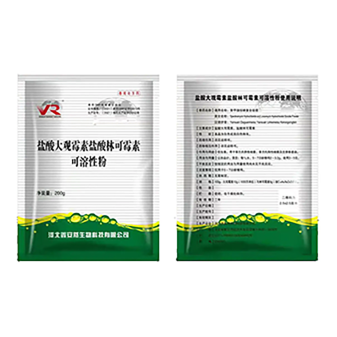- Afrikaans
- Albanian
- Amharic
- Arabic
- Armenian
- Azerbaijani
- Basque
- Belarusian
- Bengali
- Bosnian
- Bulgarian
- Catalan
- Cebuano
- Corsican
- Croatian
- Czech
- Danish
- Dutch
- English
- Esperanto
- Estonian
- Finnish
- French
- Frisian
- Galician
- Georgian
- German
- Greek
- Gujarati
- Haitian Creole
- hausa
- hawaiian
- Hebrew
- Hindi
- Miao
- Hungarian
- Icelandic
- igbo
- Indonesian
- irish
- Italian
- Japanese
- Javanese
- Kannada
- kazakh
- Khmer
- Rwandese
- Korean
- Kurdish
- Kyrgyz
- Lao
- Latin
- Latvian
- Lithuanian
- Luxembourgish
- Macedonian
- Malgashi
- Malay
- Malayalam
- Maltese
- Maori
- Marathi
- Mongolian
- Myanmar
- Nepali
- Norwegian
- Norwegian
- Occitan
- Pashto
- Persian
- Polish
- Portuguese
- Punjabi
- Romanian
- Russian
- Samoan
- Scottish Gaelic
- Serbian
- Sesotho
- Shona
- Sindhi
- Sinhala
- Slovak
- Slovenian
- Somali
- Spanish
- Sundanese
- Swahili
- Swedish
- Tagalog
- Tajik
- Tamil
- Tatar
- Telugu
- Thai
- Turkish
- Turkmen
- Ukrainian
- Urdu
- Uighur
- Uzbek
- Vietnamese
- Welsh
- Bantu
- Yiddish
- Yoruba
- Zulu
ធ្នូ . 18, 2024 04:41 Back to list
genalten gentamicin sulfate
Gentamicin Sulfate An Overview of Its Uses and Importance
Gentamicin sulfate is an aminoglycoside antibiotic that is widely used in clinical settings to treat a variety of bacterial infections. Initially discovered in the 1960s, gentamicin is derived from the bacterium Micromonospora purpurea and has since become a cornerstone in antimicrobial therapy. Due to its effectiveness against gram-negative bacteria, its role in treating infections cannot be overstated.
Mechanism of Action
Gentamicin functions by inhibiting bacterial protein synthesis. It binds to the 30S subunit of the bacterial ribosome, interfering with the translation process. This binding prevents the formation of crucial proteins required for various bacterial functions, leading to the cell's inability to grow and reproduce. As a result, gentamicin exhibits bactericidal activity, making it effective in treating serious infections caused by susceptible organisms.
Clinical Uses
Gentamicin is primarily used to treat serious infections caused by aerobic gram-negative bacteria, including Escherichia coli, Klebsiella pneumoniae, and Pseudomonas aeruginosa. It is often administered in hospitals for conditions such as
1. Urinary Tract Infections (UTIs) Gentamicin is effective for treating complicated UTIs, especially when the causative organism is resistant to other antibiotics.
2. Respiratory Infections In cases of pneumonia or lung infections caused by gram-negative bacteria, gentamicin is sometimes used in combination with other antibiotics for enhanced efficacy.
3. Sepsis In critically ill patients suspected of having sepsis, gentamicin may be part of an empiric treatment regimen, often in combination with other broad-spectrum antibiotics.
5. Skin and Soft Tissue Infections Bacterial skin infections may also be treated with gentamicin, particularly when other antibiotics are contraindicated.
genalten gentamicin sulfate

Administration and Dosage
Gentamicin can be administered in several ways intravenously, intramuscularly, or topically. The choice of administration route often depends on the severity of the infection and the patient’s overall health condition. Dosage is determined by various factors, including the patient's age, weight, kidney function, and the severity of the infection. Monitoring is essential, as gentamicin has a narrow therapeutic index, which means that the difference between an effective dose and a toxic dose is small.
Side Effects and Considerations
While gentamicin is an effective antibiotic, it is not without risks. Potential side effects include
- Nephrotoxicity One of the most concerning adverse effects of gentamicin is its potential to cause kidney damage, especially in patients with pre-existing renal impairment. Regular monitoring of renal function is often mandated during gentamicin therapy.
- Ototoxicity Gentamicin can also affect hearing and balance, particularly with prolonged use or in patients with compromised renal function. Patients should be monitored for signs of hearing loss and vertigo.
- Neuromuscular Blockade In some cases, gentamicin may cause muscle weakness, which is a concern for patients with neuromuscular disorders.
Because of these side effects, gentamicin therapy is typically reserved for situations where the benefits outweigh the risks, and it is used under strict medical supervision.
Conclusion
Gentamicin sulfate remains a critical tool in the fight against bacterial infections, particularly those caused by resistant organisms. Despite the potential risks associated with its use, its efficacy and broad-spectrum activity make it an invaluable option in critical care and various surgical settings. Ongoing research into aminoglycosides continues to shed light on enhancing their efficacy and reducing side effects, ensuring that gentamicin sulfate remains an important part of antimicrobial therapy in modern medicine. As always, the responsible use of antibiotics is essential to combat the growing threat of antibiotic resistance, ensuring that gentamicin continues to be a viable option for treating serious infections for years to come.
-
Guide to Oxytetracycline Injection
NewsMar.27,2025
-
Guide to Colistin Sulphate
NewsMar.27,2025
-
Gentamicin Sulfate: Uses, Price, And Key Information
NewsMar.27,2025
-
Enrofloxacin Injection: Uses, Price, And Supplier Information
NewsMar.27,2025
-
Dexamethasone Sodium Phosphate Injection: Uses, Price, And Key Information
NewsMar.27,2025
-
Albendazole Tablet: Uses, Dosage, Cost, And Key Information
NewsMar.27,2025













